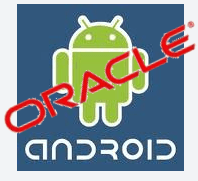| Patent Office Ruling Reduces Oracle's Case Against Google |
| Written by Sue Gee |
| Thursday, 23 June 2011 |
|
The US Patent and Trademark Office has rejected 17 of 21 claims associated with one of the patents in Java that Oracle asserted Google had violated with Android. This is the outcome of the third of the seven patents being re-examined at Google's request. Oracle's case against Google is that it infringed seven of its patents relating to the Java VM and originally it made a total of 168 claims. As well as preparing to battle this out in court, Google requested the US Patent and Trademark Office to re-examine the seven patents involved. The USPTO has now completed its reexamination of Patent Number 6192476 and dismissed all but four of Oracle's claims. In the case of the other two patents so far re-examined all the claims subject to re-examination were rejected but some of the claims asserted by Oracle were not subject to re-examination. The current tally is that 92% of the re-examined claims have been thrown out. According to Groklaw, the source of these figures, this is: consistent with reexamination stats that have been produced in academic studies showing 90+% of claims being rejected on reexam Groklaw continues: If that stat [92%] holds for the remaining four patents, Oracle will only have about 48 claims out of 168 that survive, and not all of those will be independent claims [NB: A dependent claim that survives is not worth much if its associated independent claim does not survive. The real value in these patents is in their independent claims.] So Oracle has a dilemma. Judge Alsup had ordered it to reduce the number of claims to a "triable" number and set that at 3, with the rider that the asserted claims not being tried could not be renewed. When Oracle demurred and argued that it wanted to assert at least one claim per patent the Judge postponed the decision about how many claims to try until the pre-trial conference but also raised the issue of delaying the trial until the patent re-examination was complete.
I like Groklaws' interpretation of the situation: Reminds one of the scene from Indiana Jones and the Last Crusade where the knight guarding the Holy Grail warns, "Choose carefully." If Oracle narrows the claims it asserts in order to satisfy the court, it may find it has asserted a claim the USPTO is now rejecting. Wait for the reexaminations to run their course, and Oracle may find it has nothing left to assert. So the plot continues to unfold, or should that be unravel? Previous articles:Oracle v Google - Judge limits scope of trial Judge losing patience with Oracle v Google? Oracle v Google - it's just about money
If you would like to be informed about new articles on I Programmer you can either follow us on Twitter or Facebook or you can subscribe to our weekly newsletter.
|
| Last Updated ( Sunday, 16 August 2020 ) |


